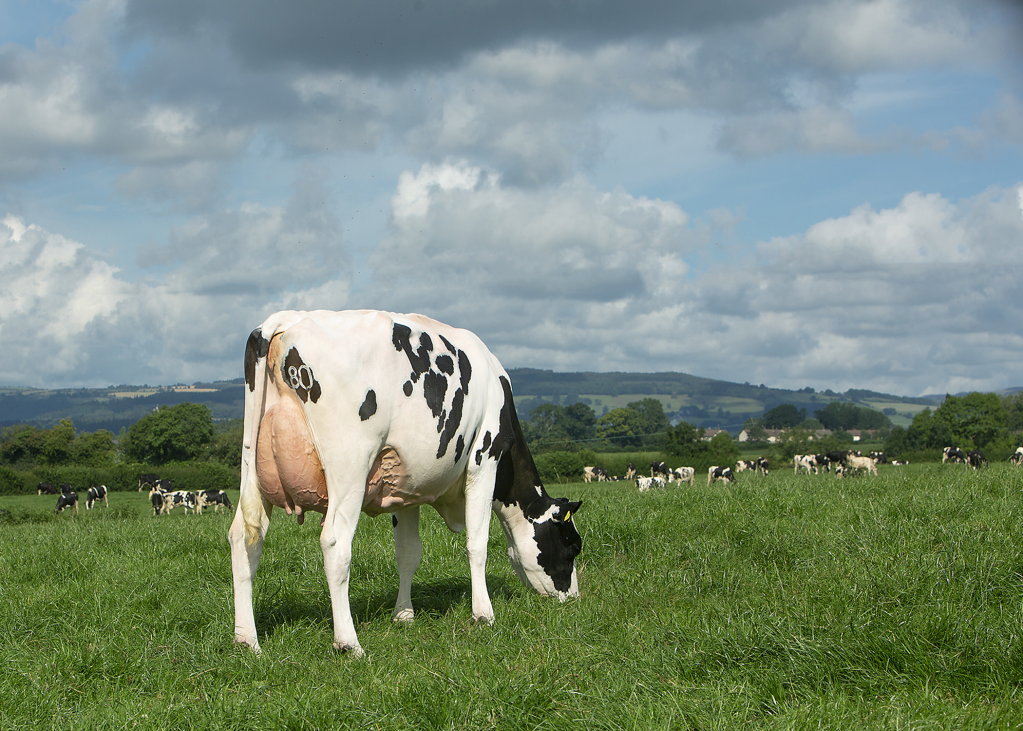Dairy cattle genetics can help us to predict and influence if the next generation of cattle will possess preferred characteristics such as high milk production, good health and favorable management qualities. Every farmer should have a genetic plan to assess their cattle and make sure their next generation has these qualities, to make them easier to manage and more profitable.
Controlled and selective breeding can help to improve milk productivity in dairy animals and increase profitability for your farm, with the identification and selection of better parent animals ensuring a high-producing next generation. The effects of selective breeding build and improve over generations so your herd can become more and more profitable as time goes on. The more selective you are in choosing the parents, the more desirable you can ensure your next generation of calves.
How do genetics affect milk production?
Those wondering what components of genetics influence the quality of milk and milk production itself can look to the Holstein cow. The Holstein is the highest milk producing farm animal in the world and therefore the most popular dairy cow globally.
Despite producing more milk than any other breed, the Holstein doesn’t come without problems for dairy farms. Due to artificial selection, the strain of milk production on dairy cows is sometimes associated with reduced health and fertility. While Holsteins may be genetically better at producing milk, health issues and reduced fertility can mean higher vet bills and lower profit margins. This has led to the rise of breeding functional traits into herds to counteract any issues.
Dairy crossbreeding is one way to do this, bringing positive traits from different breeds to reduce workload and increase profits. ABS Global recommends a crossbreeding program involving the Jersey, Norwegian Red and Holstein breeds.
What traits are selected in dairy cows?
Genetic selection of dairy cattle is important because certain cattle will be better suited to being dairy cows than others. In dairy cattle, preferable traits include health, efficiency, manageability and fertility.
Genetic improvement of dairy cattle
Genetics can be adjusted and altered to improve milk production and the overall quality of milk through a variety of methods. A genetic plan is extremely important when considering the future of your herd. Often farmers will base their plan on common industry practices but because each farm has different business goals, facilities and other environmental factors, a tailored genetic plan is essential. ABS Global can offer solutions for your genetic plan that will ensure all of the intricacies of your farm are covered so your herd can maximize profitability and develop the correct traits for your business goals.
A key aspect of the genetic improvement of your herd is genetic assessment, analyzing your cattle’s pedigree or genomic information in order to rank your animals and assure that the next generation’s traits are better than the last. ABS Global can conduct a genetic assessment on your cattle and provide guidance for your herd’s genetic progress.
Incorporating a beef on dairy strategy into your plan can add substantial genetic improvement to your cattle while also adding beef calf value to your dairy herd. Beef on dairy consists of using sexed dairy semen on the higher quality cows in your herd to produce the correct number of replacement heifers, which will be genetically superior to the previous generation. The rest of your herd should be bred with top quality beef semen to produce calves for the beef industry.
Get in touch with ABS Global
We know that every farm is different and not all cows are created equal, which is why we have a variety of solutions for your genetic plan and genetic assessment. We specialize in genetic strategy and crossbreeding and can create a tailor made program for your herd to maximize profitability. Contact us too see how we can help.






